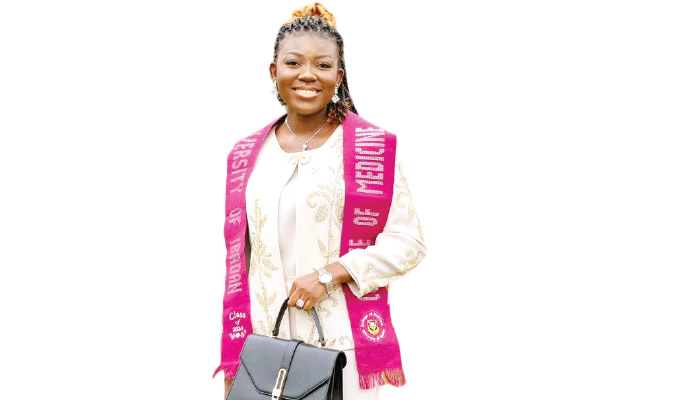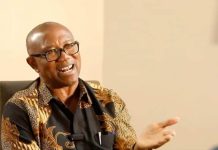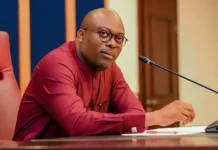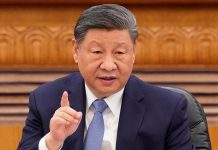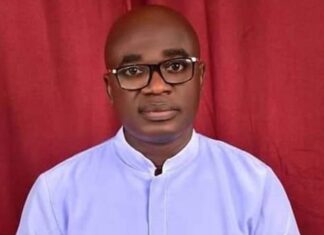

The best-graduating student of the MB; BS 2024 set from the College of Medicine, University of Ibadan (2022/2023 Session), Dr. Odunsi Temidayo, tells temitope adetunji how her mum and love for humanity shaped her career path
Can you share your journey to becoming the best-graduating student in 2024?
Unlike the typical story of setting a goal from the beginning and working towards it, I started by aiming to do my best and finishing strong.
My mom always encouraged me to do my best and leave the rest to God. So, I focused on attending classes, taking notes, and studying diligently.
My scores consistently placed me at the top, often ranking first, second, or third, throughout my seven years in school. It caught me by surprise, but my friends always told me it wasn’t surprising because I had put in the hard work, often reading for six to eight hours while still getting six hours of sleep, which some found hard to believe.
I was actively involved in various activities and organisations, making me a well-rounded individual. I was the Assistant Music Director of the UCH Sinfonia Choir.
I volunteered in many organisations such as Hamstrings and Rotaract Club, holding positions such as chairperson, international service director, treasurer, and financial secretary.
I also wrote poems and prose. I ensured that even when I found some questions difficult, I heeded my mother’s advice to never leave any question paper blank.
I would write something down, and it would make sense to my lecturers and examiners, resulting in scores that often surprised me.
I believe God took me under His wings and aligned things from the start, even though I wasn’t aware of it. I owe a lot to my friends and classmates who rallied around one another, forming tutorial groups. Although I preferred to read alone because I moved faster, the group study sessions were, however, invaluable.
It started during our second professional exam when a friend needed a place to stay, and we began reading together to prevent falling asleep. This formed the basis of our tutorial group, where we solved questions together. Amazingly, the topics we studied together often appeared in exams, and I was grateful we covered them.
One significant challenge for me was pharmacology. I found it tough learning all the drugs and their mechanisms of action. I didn’t like it. But, thanks to the support and collaboration of my friends, I was able to overcome this hurdle.
Although my mom always told me that if you don’t like something, try to like it, try to just read it. For some reason, I ran away from that course and I had the paper the next day.
I met my friend and said, “At this point, I don’t think there’s anything to read, but there’s nothing God cannot do the night before the exam.” Can you imagine? And I don’t like mnemonics. I don’t like using mnemonics to read because I feel that under exam tension, you might forget them and you’ll be struggling in the exam hall trying to remember them. But she used mnemonics.
I knew that at this point, I didn’t have a choice, and whatever it was that she could teach me between that evening and the next morning, I was ready to grasp it. She taught me the mnemonics of over, let’s say, 20 different topics. I got to the exam hall, and those were the exact questions that came out. I simply wrote down the mnemonics, and I passed that course.
So, there are many moments when God’s grace truly stood out for me. Times when he really came through for me. Some would, say I have a photographic memory. Sometimes I wonder if that is true. I would sit at my table for four or five hours, reading my books, and making my notes, and I’m able to retain the information.
While I’m in the exam hall, it’s like I can see my notes in my head.
What was your CGPA?
In medical school, we do not use GPA. Unfortunately, it is just a pass or fail, and after the induction, we receive our transcripts that show our scores. However, in 100 level, before the start of preclinical school, I had 3.73 out of 4.
You mentioned that your mum was supportive; what about your dad?
My mom provided more academic support since she’s a medical doctor. She could relate to the questions I had and the subjects I studied. She provided guidance and tips over the phone while my dad provided more of emotional and social support, surprising me with tubers of yams and provisions in school.
He would come to my hostel on some weekends and say, “Oh, let’s go out so that you can unwind,” and then we would chat. So, I had that invaluable balance: the academic support, and then the emotional and social support.
My dad has a personal mantra that he often used to conclude our phone conversations. He would say, “Focus, focus, focus.”
What does he do?
He’s a professor of Animal Science at LAUTECH, Ogbomoso.
What position are you in the family?
I’m the second child.
What inspired you to pursue a career in the medical profession?
There are many reasons why I chose to pursue a career in the medical profession. I’ll start with my earliest childhood memory. Every morning on the bus ride to school, I would see individuals by the roadside begging for alms or food.
Seeing their plight made me feel like I should do something to help them. As I grew up, I tried to figure out how I could help. Should I give them money? Should I give them food? At the time, I didn’t know what I could do. I was only five or six years old then. I didn’t know what profession I wanted to pursue, but I held onto the idea of helping people until I realised what my mother did for a living; she was a medical doctor.
I’ve always admired the way she worked as a community physician. She always helps people even when it may be inconvenient or stressful. She’s selfless and generous. From that, I thought, “Okay, it seems like what my mom is doing is related to my childhood goals and dreams.” I’ve always wanted to give back to the community and help people, which is why I immersed myself in volunteering during medical school. And my mom would always say, “Being a doctor, you might not be rich, but you’ll be comfortable. You’ll be able to touch lives with the little you have, be it money, your smile, or just helping or talking to someone. You’d also have your daily bread.”
As a science student in secondary school, there weren’t many options. It was either engineering or medicine, and I did not like physics and math. So, I struck engineering from the list and thought, “Okay, I think medicine captures my essence.” I love biology, helping others, reading, and writing.
How many courses did you offer in medical school?
Medicine and surgery have many departments, so you have to go through all of them. There are 11 major departments, but they are further divided into different specialties and subspecialties.
What do you do currently?
We were inducted on Saturday. So, most of us are gathering our documents, applying for house jobs, and obtaining our letters of recommendation. Sometime in August or September, the MDCN portal will open, and we’ll be able to select our preferred location for house jobs. In the interim, I would love to either pursue one of my interests or further develop a particular skill.
You mentioned that you got engaged in different extracurricular activities despite being in school. How did you balance your academic responsibilities with your personal life and other commitments?
Well, my mom always says there’s time for everything.
When I first started at UI, between the 100 and 200 level, I didn’t involve myself in many activities or organisations. I took a step back to understand my reading patterns, what I enjoyed doing, and what I wanted to do. I figured out how I read best and understood the slides.
Once I moved to the clinical side during my 300 and 400 levels, I looked at all the associations present: Hamstrings, Rotaract, Red Cross, Sinfonia, Quills, etc. I didn’t want to pick too many, so I wouldn’t be overwhelmed and burned out.
So, I chose one from each: I enjoyed volunteering, so I chose Hamstrings and Rotaract; I enjoyed singing, so I chose Sinfonia; for creative writing, I chose Quills. There was a mix of things I enjoyed doing.
I ensured that the times when they met were well-spaced. Rotaract meets every fortnight on Sundays, Hamstrings meets on the first Tuesday of the month, and Sinfonia meets on Sundays when we have a concert to prepare for.
I made sure that the schedules did not clash, and I left a lot of space between activities. This way, I did not feel overwhelmed. I prioritised my academics above most things.
Fortunately, most of these organisations help by providing educational talks, conferences, and seminars, so no knowledge is lost. If I sleep for six hours, read for eight hours, and attend school for another eight hours, the extracurricular activities would only take up about two or three hours of my day, and it’s not every day.
Would you say that your mom’s career also influenced your choice?
Yes, definitely.
Were there any particular challenges you faced during your studies? And how did you overcome them?
There were definitely challenges. I believe that I trained myself to be very optimistic. Even in the face of difficulties, like power outages, challenging courses, or being swamped with clinical rotations, I remained positive. Sometimes I would be in school for eight to 10 hours, and by the time I returned to my room, I would be too tired to read. Many unforeseen circumstances came up.
I remember having to organise and partake in a concert just 10 days before a major exam. For the most recent concert, it was less than two months before my last professional exam.
Being able to delegate and being patient prevented me from shouldering the entire burden of the event. Good communication skills were crucial in motivating people to share the workload, so I didn’t feel overwhelmed.
Can you describe a memorable experience from your clinical rotations?
I had many wonderful moments during my clinical rotations. One of the most memorable experiences for me was developing friendships with my colleagues. Before and after every professional exam, my friends and I, nine of us, would gather at one of our friend’s houses.
We would cook spaghetti and fried plantain together, and in those moments, we would forget about exams and lectures. We were simply enjoying one another’s company, having fun, and playing games. I believe that these bonds of friendship truly carried me through medical school. Sometimes, they would cheer me on, saying, “Yes, go, girl, you can do this!” Other times, we would help one another by explaining concepts we didn’t understand.
Were you in a relationship during your school days?
No, my mom believes that your friendships should be platonic while you are in university, and afterward, you can pursue a romantic relationship if you choose to. Face your books squarely, but still have good friends.
How did you stay motivated and focused throughout your rigorous academic program? Were there distractions?
I have a fear of disappointing others, including myself, and my parents. Even though my mom would say, “Go to school, pass, do your best. I don’t need you winning all the awards or reading for 16 hours,” I still wanted to do my best at every point in time, at every moment. I wanted to be able to say, in the end, “Yes, I did my best.” My father frequently shared photographs and interviews of other students who were excelling in various universities and programs as a form of encouragement.
I believe another thing that motivated me was my desire for my story to truly reflect God’s goodness and glory in my life. I knew that I would not fail because God fulfills His part. However, let’s say I do nothing (zero) and God wants to multiply my efforts by 100, that’s zero. But if I do something (five) and He multiplies it by 100, that’s 500. So, he needs something to work with, something to mold so that my light shines for others to see and be inspired and motivated.
How did you feel when you realised you were the best-graduating student?
I was elated, shocked, humbled, and grateful. To this day, it baffles me how much God has helped me and transformed my life. I am filled with gratitude and eager to share testimonies of His goodness in bringing me thus far. I was even happier because my classmates were very supportive, sending congratulatory messages and acknowledging my consistency and diligence. It felt like I won it for all of us because many people played a part in my success story. I am incredibly grateful to everyone and to God. This achievement has motivated me to set my sights higher and perform even better.
How do you plan to give back to the community or contribute your quota to Nigeria’s healthcare sector?
I enjoy volunteering, and I intend to continue doing so. In the future, I aspire to establish foundations, and organise conferences and seminars for young individuals who would inspire them to start early and demonstrate that hard work, consistency, and having God on your side pays off.
What are your thoughts on the state of healthcare, and how do you think it can be improved?
The current state of healthcare in Nigeria is very concerning. Many professionals want to leave the country due to the poor standard of living, inadequate pay, and lack of essential equipment. Frequent power outages, which can last for many days, also affect patient care and outcomes. I believe that improving healthcare requires a collaborative effort from the government, the healthcare system, philanthropists, as well as support from those residing abroad. For instance, alumni from the University College Hospital in Ibadan have been sending funds from abroad, which has helped continue building projects there.
So, all hands have to be on deck. You can go abroad to study and get better training, but I encourage you to come back to contribute your skills and knowledge to society. The government also has a part to play, with better pay, better hospitals, and better access to healthcare.
There are many people in the villages that can’t even access healthcare. So a lot has to be done. All sectors, including agriculture, electricity, education, transport, infrastructure, and the financial sector, must contribute. Everyone has to give back and do what they can to help.
What advice would you give to future medical students aiming for excellence?
I would tell them that it doesn’t matter how you begin; your ending can always be great. Start early, be consistent, be diligent, and face your challenges head-on. Don’t procrastinate like I did with pharmacology. Lastly, trust God to take you on a beautiful ride.
Were there any extracurricular activities or hobbies that helped you unwind and manage stress during your study days?
Yes. I occasionally felt like I spent more time watching movies than reading books to keep my mind active but not overly taxed, I watched a wide variety of movies from various genres – documentaries, dramas, action movies, and anything else that offered a break were all included. Additionally, spending time with friends was beneficial. We would go on walks, watch movies, play games, or enjoy snacks together. Singing is another pastime; meeting every Sunday to sing was very relaxing for me.
Join Television Nigerian Whatsapp Now
Join Television Nigerian Facebook Now
Join Television Nigerian Twitter Now
Join Television Nigerian YouTUbe Now

